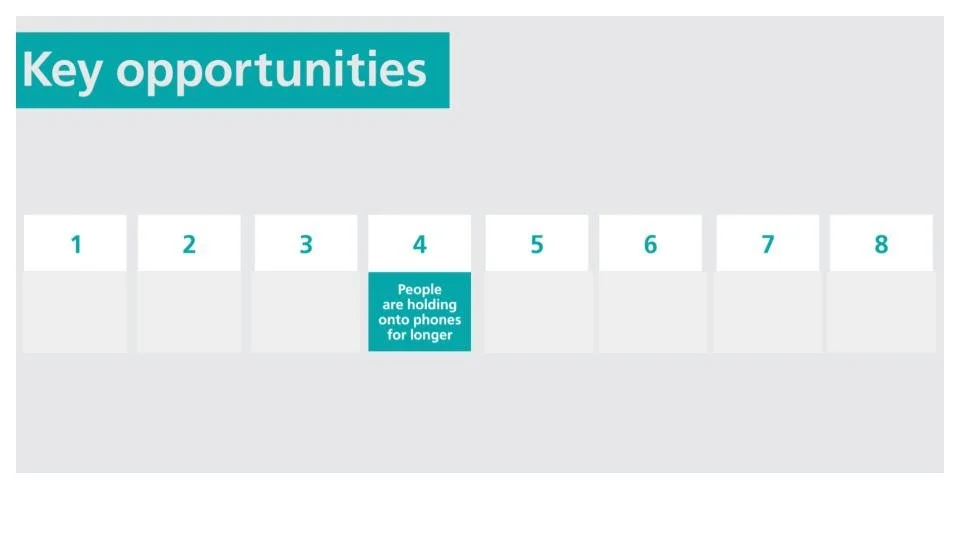Revitalising O2’s Mobile Services with Customer-Centric Propositions
The Context
In 2009, O2 became the UK’s leading telecom provider, gaining exclusive rights to sell the first iPhone. Over time, however, the competitive landscape intensified, and O2 began losing its market share due to rivals’ heavy investments in marketing and new product offerings. By 2017, O2’s share of voice had slipped to 5th place. The upcoming iPhone 8/X launch in 2018 presented an opportunity to reclaim relevance, but O2 needed a bold, differentiated approach to stand out from the competition.
The Challenge
Despite a strong legacy, O2’s competitive edge was eroding. Customer loyalty was waning, and many customers were either out of contract or feeling disengaged. The challenge was to rebuild brand strength, retain existing customers, and attract new ones by offering something that would resonate with both current and potential customers, especially those who were value-conscious and had become indifferent to the latest devices.
My Role
I led a cross-functional team, including designers, strategists, data analysts, and researchers, to identify opportunities that O2 could leverage to regain market share. I took charge of conducting ethnographic, in-store, and online research together with the whole team to uncover customer pain points and cultural shifts. Through collaboration with O2’s internal teams and VCCP, I developed new customer propositions based on data insights and trends in customer behaviour. My role included presenting these findings and recommendations to O2’s senior leadership team, which consisted of the Head of Marketing, Head of Propositions, and Head of Customer Insight, and successfully selling the strategic vision for new customer-centric solutions.
The Work
We kicked off the project by conducting ethnographic research and semiotic analysis to gain a deeper understanding of the evolving role of mobile phones in people’s lives. My team and I analysed customer data and social listening insights, comparing customer sentiment and competitor activities. We identified a cultural shift: mobile phones were no longer seen as status symbols but as essential tools, and customers were more focused on value and product longevity.
From these insights, we designed a customer segmentation strategy focused on two key audiences:
O2’s existing core high-value audience.
A high-growth audience with potential for volume and value.
The team and I conducted mystery shopping and qualitative research to validate these findings and identify opportunities for new product and service offerings. One key insight was the growing dissatisfaction with the cost of phone repairs, particularly screen replacements, which led to increased customer churn as people opted to keep old, broken phones rather than upgrade.
I led the development of a value proposition that focused on phone longevity, offering free screen replacements and battery replacements with every phone contract. This proposition idea was designed to appeal to customers who valued practicality and cost-effectiveness, rather than simply chasing the latest device.
The Implementation
O2 used the insights from our proposition development work to finalise a new offer centred around free screen replacements for high-end phones. The VCCP team then developed the 'Oops' advertising campaign, which was rolled out alongside the iPhone 8/X launch.
The Results and Impact
The campaign had immediate and tangible results:
39% increase in customer contract sign-ups and trade-ups compared to forecasts.
Customers upgraded to higher tariff bands—up to three tariff bands—just to qualify for the free screen replacement.
The proposition and campaign delivered an additional £13.6M against the business target.
Despite O2's competitors outspending the brand during the launch period, O2’s brand perception and consideration improved significantly, especially among its medium- and high-value customers. The campaign delivered strong ROI, helped rebuild O2's share of the iPhone market, and solidified O2’s position as a leading telecom brand with a focus on value-added services.







